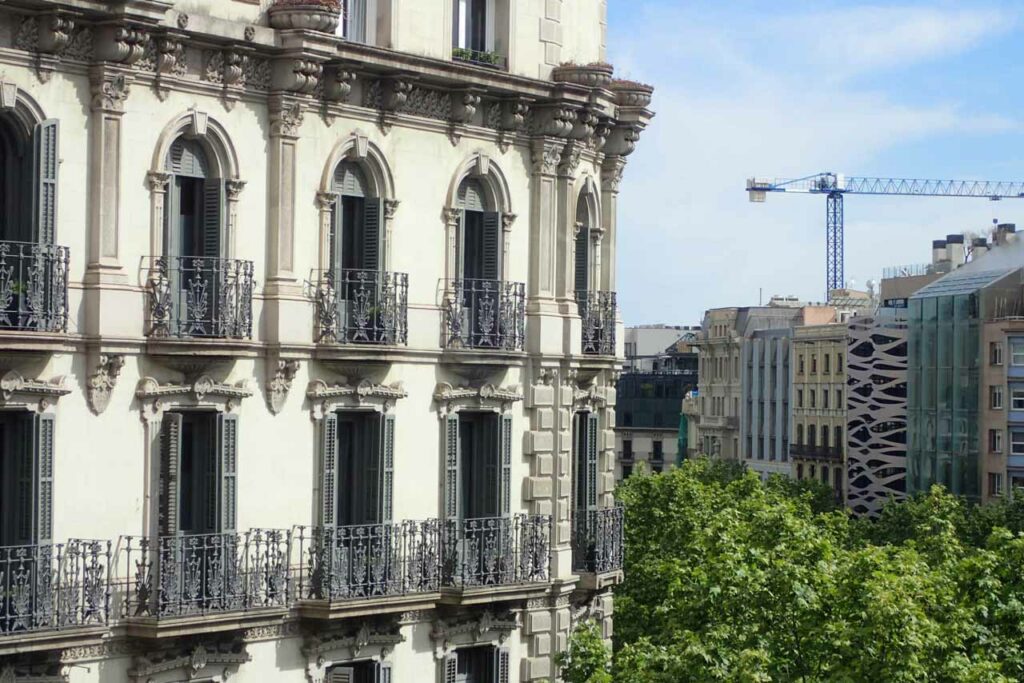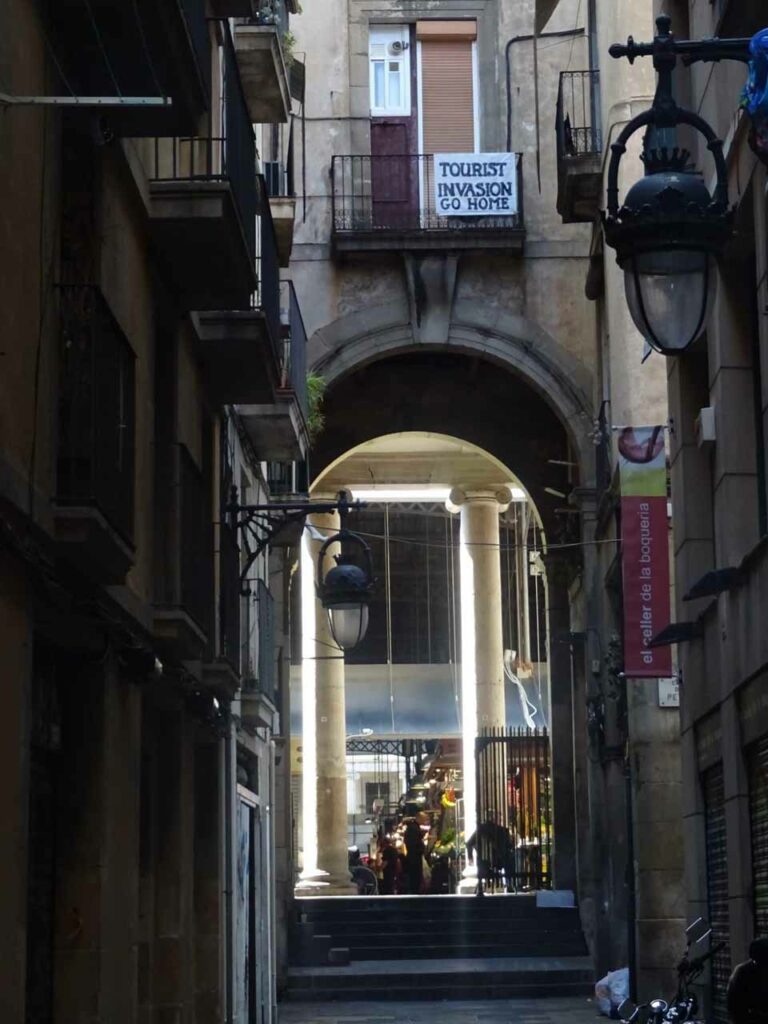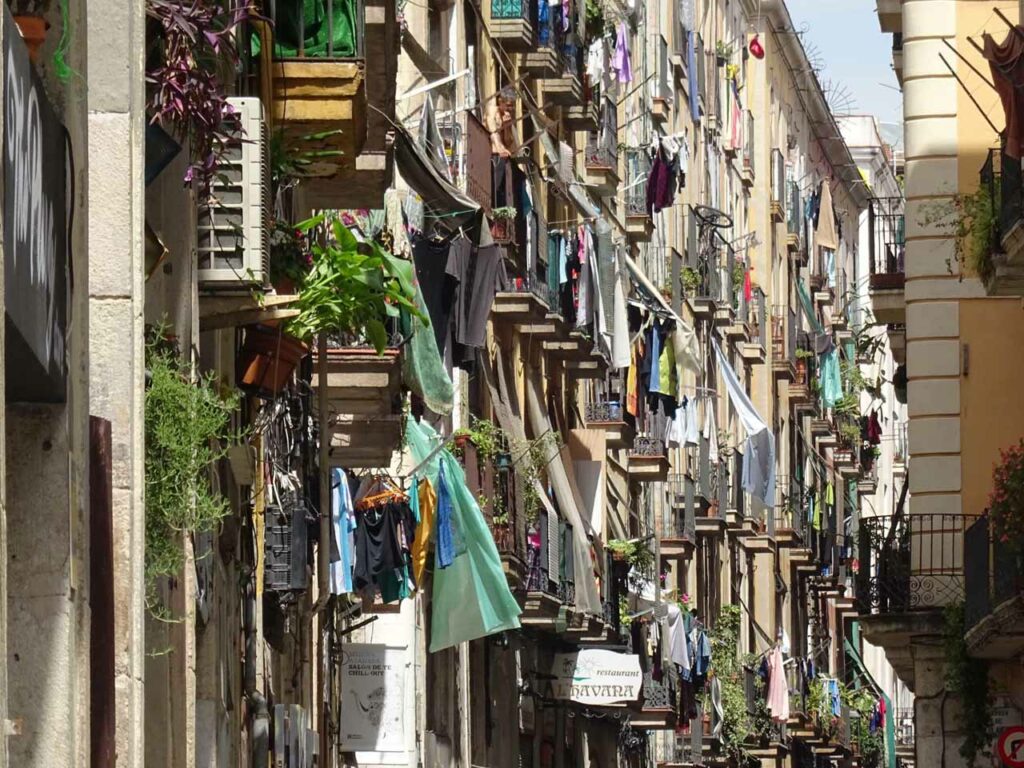Airbnb – and other short-term rental platforms – have long been under fire for pricing local renters out of city-centres in popular tourist destinations.
Barcelona is working towards banning short-term private rentals entirely.

Trouble on the Horizon
According to a Euronews report in 2019, “the city centre’s residential population has declined 11 percent in the past four years. A major contributing factor is the amount of apartments being rented out to holidaymakers.”
One 2019 paper found that 6.84 percent of all rental properties in Barcelona were listed on Airbnb.
And tourists aren’t necessarily bringing much culture with them. The backlash against tourists that I’ve written about before is not matched by the welcome for immigrants.
“Immigrants bring their culture and contribute to society,” one Barcelona local told me. “Most tourists just come for a few days and take.”

The Good…
Don’t get me wrong, I quite like the concept of Airbnb. If you have some spare space to rent – which is where the whole Airbnb concept was born – it not only utilizes otherwise unused space, but it also encourages cultural interactions.
Brilliant.
Even if it is a holiday-house rental, it is at least putting otherwise unused property to good use. It possibly even contributes to making some seasonal holiday destinations feel lived-in, year-round.

…the Bad…
But there’s a whole other business that has sprung-up with Airbnb: professional hosts. Apparently more than half the Airbnb listings in the US are with hosts that have more than two other listings.
And Barcelona is a particularly attractive market for professional hosts because of the large difference between the costs of long- and short-term rentals.
Rental arbitrage has been a very lucrative business. Hosts take out apartments on long-term leases and then list them on peer-to-peer sites like Airbnb, and make a very good living, with very little upfront investment. Generally in Barcelona 10 nights of holiday rental income equates to a month’s long-term rental.
…and the Ugly
There are issues though.
Having lived under an (illegal) holiday rental, I can attest that it is more than a little annoying.
Renters arrive at all hours, drag suitcases up stairs, clomp around in high-heels on hard floors, have parties, and generally make nuisances of themselves. If you’re okay only getting reliable sleep between 3am and 6am it’s fine.
On top of everything else, the host doesn’t contribute anything for the extra wear-and-tear or cleaning of the common areas.
The government in Barcelona has had enough. Not only has is not granted any new tourist licenses in Barcelona since 2016, but it aims to phase them all out by 2028.
It is a rare instance of anyone pushing back against excesses of the broligarchy. New York and Berlin have also added restrictions on short-term tourist rentals.
Expect to see more.
In the short-term, if you are renting an apartment, do everyone a favour and enter the address at https://www.fairtourism.barcelona to ensure it is a legal one.
Moving Forwards
In 2024 protestors hit the streets to protest against over tourism.
But tourism also represents around 14 percent of the city’s economy and nearly 10 percent of its employment.
Authorities need to walk a fine line between protecting the city’s identity and culture, while also not tanking the economy. Tackling the excesses of tourism – I’d argue short-term rentals in residential buildings count as that – is a good place to start.
Where to stay in Barcelona
Heading to Barcelona? Check out our hotel recommendations here.
What to see and do in Barcelona
Check out our recommendations for dining in Barcelona and what to see and do in Barcelona.